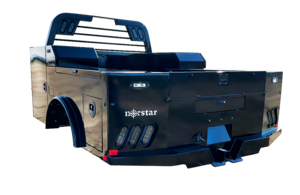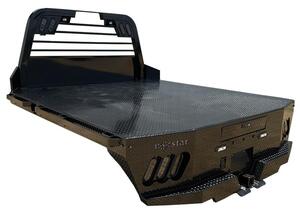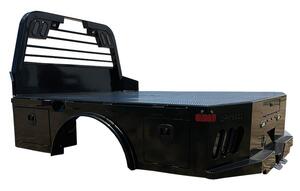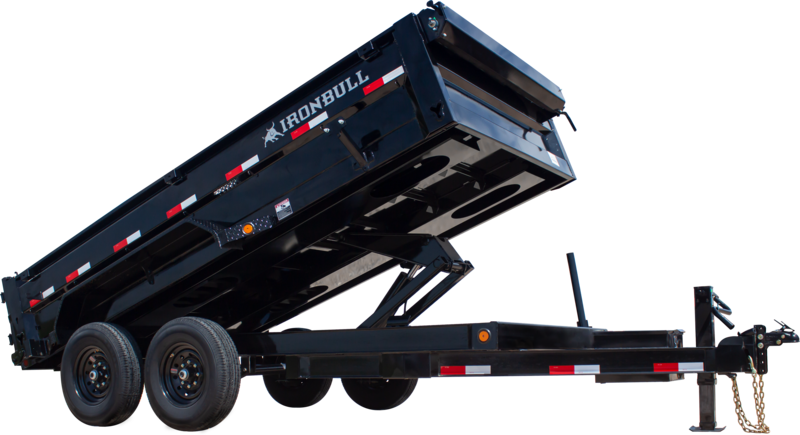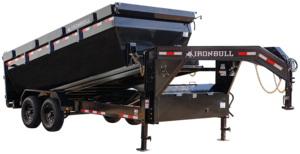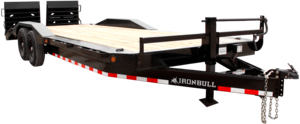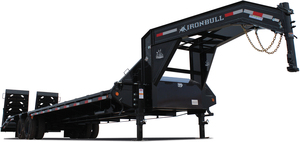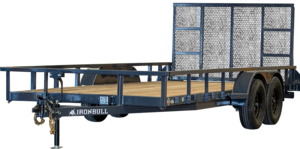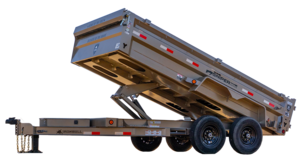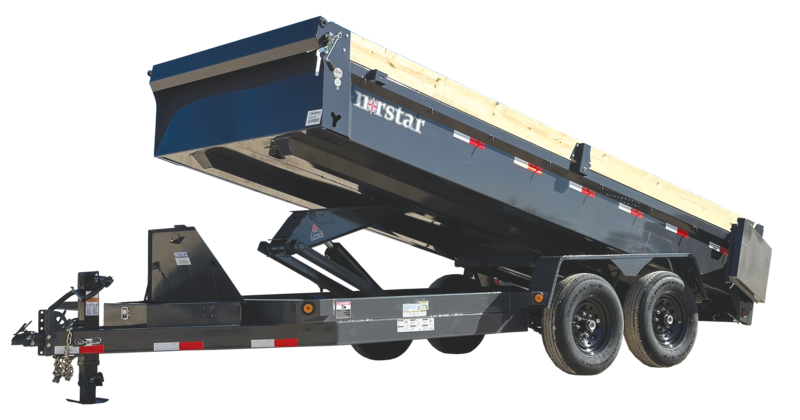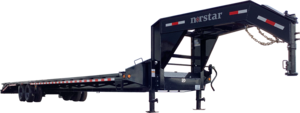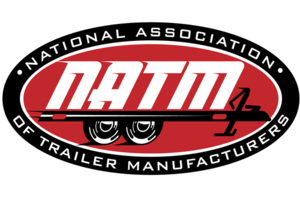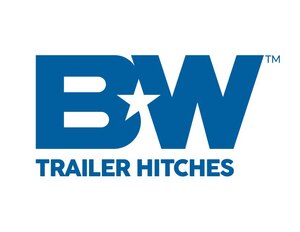Trailer for Moving: A Comprehensive Guide to Seamless Relocation
Moving can be a daunting task, but choosing the right trailer can make the process smoother. Whether you're opting for one-way moving trailers, renting a trailer for moving or considering moving with a trailer, this guide will provide valuable insights to ensure a hassle-free relocation.
Types of Trailers That Are Suitable for Moving
Selecting the appropriate type of trailer is a fundamental step in ensuring a successful and stress-free move. From enclosed trailers providing protection against the elements to versatile utility trailers, this guide explores the various types available, offering insights to help you make an informed choice tailored to your specific moving needs.

1. Enclosed Trailers
Enclosed trailers offer protection from the elements and added security for your belongings during transit. Ideal for long-distance moves, they shield items from adverse weather conditions.
2. Utility Trailers
Utility trailers are versatile and suitable for various moving needs. They provide an open platform for easy loading and unloading, making them ideal for local moves or transporting bulky items.
3. Specialty Moving Trailers
Specialty trailers cater to specific items like motorcycles, cars, or unique belongings. Understanding your needs will help you choose the trailer that best suits your moving requirements.
How to Determine the Right Size of Trailer for Your Move
Choosing the right size of trailer is a pivotal decision in the moving process, influencing both the safety of your belongings and the overall efficiency of your relocation. Let’s delve into the key considerations and practical tips to help you accurately determine the ideal trailer size for your move, whether it's a local transition or a long-distance journey.
Assessing the Volume of Belongings
Take inventory of your possessions to estimate the trailer size needed. This ensures that everything fits comfortably and securely during transportation.
Considerations for Large Furniture and Appliances
Factor in the size of your furniture and appliances. Choose a trailer that accommodates these larger items without compromising safety.
Estimating the Number of Trips Required
Efficiently plan the number of trips needed to transport all your belongings. This helps streamline the moving process and minimizes unnecessary back-and-forth.
What Equipment and Accessories are Essential for Moving with a Trailer?
As you prepare for a move with a trailer, selecting the right equipment and accessories is paramount to ensure a secure and well-organized transportation of your belongings. From tie-downs and loading ramps to safety gear, let’s discuss the essential tools needed to enhance the efficiency and safety of your trailer move.
Necessary Tie-Downs and Straps
Secure your belongings with high-quality tie-downs and straps to prevent shifting during transit.
Furniture Pads and Covers
Protect furniture from scratches and damage by using furniture pads and covers.
Loading Ramps and Dollies
Facilitate the loading and unloading process with ramps and dollies, making it easier to move heavy items.
Safety Equipment (Reflectors, Warning Signs)
Enhance visibility and safety by incorporating reflectors and warning signs on your trailer, especially during night-time travel.
How to Efficiently Load a Trailer for a Move
Loading a trailer efficiently is a crucial aspect of a smooth and successful move. Whether you're embarking on a local relocation or a cross-country journey, strategic loading not only ensures the safety of your belongings but also maximizes space utilization for a more streamlined and stress-free moving experience.

1. Organizing Items for Easy Access
Place frequently accessed items towards the front of the trailer for easy retrieval.
2. Maximizing Space Utilization
Efficiently utilize space by stacking items strategically and making use of available vertical space.
3. Securing Fragile Items
Prevent damage to fragile items by securely wrapping and cushioning them within the trailer.
4. Distributing Weight Evenly for Towing Stability
Maintain towing stability by evenly distributing the weight of your belongings throughout the trailer.
What legal and safety considerations should you be aware of?
Embarking on a move with a trailer involves more than just packing boxes and hitting the road. It requires a keen awareness of legal and safety considerations to ensure a journey that's not only efficient but also in strict adherence to regulations.
Understanding Weight Limits and Regulations
Abide by weight limits and regulations to ensure a safe and legal move.
Properly Securing the Load to Prevent Accidents
Thoroughly secure your load to prevent accidents and ensure the safety of yourself and others on the road.
Adhering to Speed Limits and Traffic Rules
Follow speed limits and traffic rules to guarantee a smooth and incident-free journey.
How to Safely Drive and Maneuver a Trailer During a Move
Driving and maneuvering a trailer during a move requires a unique set of skills and considerations to ensure both your safety and the safety of others on the road.

Here's a comprehensive guide on how to safely navigate your trailer during the moving process:
1. Know Your Trailer
Familiarize yourself with the dimensions and weight of the trailer. Understanding the trailer's characteristics will help you anticipate how it behaves on the road. Be aware of the trailer's turning radius, as it is often different from your vehicle's.
2. Practice Before the Move
If you're not accustomed to driving with a trailer, practice in an open, empty space before hitting the road. This will help you get a feel for how the trailer responds to steering and braking.
3. Adjust Your Driving Style
Drive more cautiously than you would without a trailer. Avoid sudden accelerations, sharp turns, and abrupt stops. Increase your following distance to allow for longer stopping distances.
4. Be Mindful of Speed
Adhere to speed limits, and consider driving slightly below the posted speed when towing a trailer. High speeds can increase the risk of accidents and make it more challenging to control the trailer.
5. Take Turns Slowly
Approach turns with caution and reduce your speed before entering. Use your turn signals well in advance to communicate your intentions to other drivers.
6. Watch for Sway
Trailer sway can occur, especially at higher speeds. If you feel the trailer swaying, ease off the gas and avoid making sudden steering movements. Consider investing in a sway control system to enhance stability.
7. Plan Your Route
Choose routes with wider lanes and minimal sharp turns. Be aware of low clearances, bridges, and tunnels that may pose a challenge for your trailer.
8. Brake Appropriately
Brake earlier than you would without a trailer to allow for the increased weight and stopping distance. Use the trailer brakes if your setup includes them.
9. Be Cautious in Reverse
Reversing with a trailer can be challenging. Have someone guide you if possible. Practice backing up in an open area to improve your skills.
10. Check Your Mirrors
Adjust your mirrors to provide a clear view of the trailer. Use extended mirrors if necessary to enhance visibility.
11. Be Weather-Aware
Exercise extreme caution in adverse weather conditions. Rain, snow, and wind can significantly impact the handling of a trailer. Adjust your speed and driving style accordingly.
12. Regularly Inspect Your Setup
Before each trip, inspect the trailer hitch, lights, tires, and brakes. Ensure that the trailer is properly connected to the towing vehicle.
13. Seek Professional Advice
If you're uncertain about driving with a trailer, consider taking a trailer-driving course. Professional instruction can provide valuable insights and boost your confidence. Find a dealer today.
Common Mistakes to Avoid When Using a Trailer for Moving
Navigating the intricacies of moving with a trailer can be a daunting task, but steering clear of common mistakes is key to a successful relocation. Let’s shed light on pitfalls to avoid, from overloading the trailer to neglecting essential maintenance, ensuring your journey is smooth, efficient, and free from avoidable setbacks.
1. Overloading the Trailer: Resist the temptation to overload your trailer; adhere to weight limits for safe transport.
2. Inadequate Securing of Items: Ensure all items are properly secured to prevent damage and accidents during transit.
3. Failing to Plan for Inclement Weather: Prepare for unexpected weather conditions by checking forecasts and securing your belongings accordingly.
4. Ignoring Towing and Trailer Maintenance Guidelines: Regularly maintain your trailer and adhere to towing guidelines to prevent breakdowns and ensure a reliable move.
Tips for a Smooth and Stress-Free Trailer Move
Undertaking a trailer move demands meticulous planning and execution for a seamless transition. Here are some practical tips aimed at ensuring your trailer move is not only efficient but also minimizes stress and complications, making the entire process more manageable and enjoyable.
Start planning early.
Label boxes for easy identification.
Keep essential items easily accessible.
Communicate effectively with your moving team.
How to Unload and Return the Trailer After the Move
Unloading and returning the trailer after completing your move is a crucial final step that requires careful attention to detail.
Here's a comprehensive guide on how to efficiently carry out this process:
1. Unload Your Belongings
Begin by parking the trailer in a safe and accessible location at your new destination. Open the trailer door and start unloading items strategically. It's advisable to have a plan, unloading heavier items first and placing them in designated areas to facilitate organization.
2. Use Proper Equipment
If you utilized loading ramps and dollies during the loading phase, make use of them again during unloading. This ensures a smoother and safer process, especially for heavy or bulky items. Furniture pads and covers should be removed carefully to prevent any damage to your belongings.
3. Teamwork and Communication
If you have a moving team, coordinate with them during unloading. Effective communication is key to ensuring everyone is on the same page, preventing accidents and speeding up the process. If you hired professional movers or enlisted the help of friends and family, express gratitude for their assistance.
4. Inspect Your Belongings
As you unload, inspect your belongings for any damage that may have occurred during transit. Document any issues promptly, especially if you plan to file an insurance claim.
5. Return the Trailer
Once the trailer is empty, it's time to return it to the rental company or facility. Ensure that all your belongings have been removed, and the trailer is in the same condition as when you picked it up. Clean the trailer if required by the rental agreement to avoid any additional fees.
6. Follow Trailer Return Procedures
Abide by the rental company's return procedures. This may include signing off on the return condition, returning any rented equipment, and settling any outstanding payments. Keep a copy of the return documentation for your records.
7. Secure the Trailer
If there are locks or security measures in place, make sure to secure the trailer properly before leaving the rental facility. If applicable, return any keys or access cards associated with the trailer rental.
Mastering the Art of Trailer Moving for a Seamless Transition
Successfully moving with a trailer involves careful planning, thoughtful execution, and adherence to safety and legal considerations. By selecting the right trailer type, determining the appropriate size, utilizing essential equipment, and avoiding common mistakes, you set the foundation for a seamless relocation. Efficiently loading, safely driving, and strategically unloading the trailer further contribute to a stress-free moving experience.
As you embark on your moving journey, trust Norstar Company for reliable trailers and expert advice. With the right trailer, meticulous planning, and adherence to safety guidelines, your move can be a smooth and successful experience. Choose Norstar Company for a hassle-free relocation. Contact them today!




